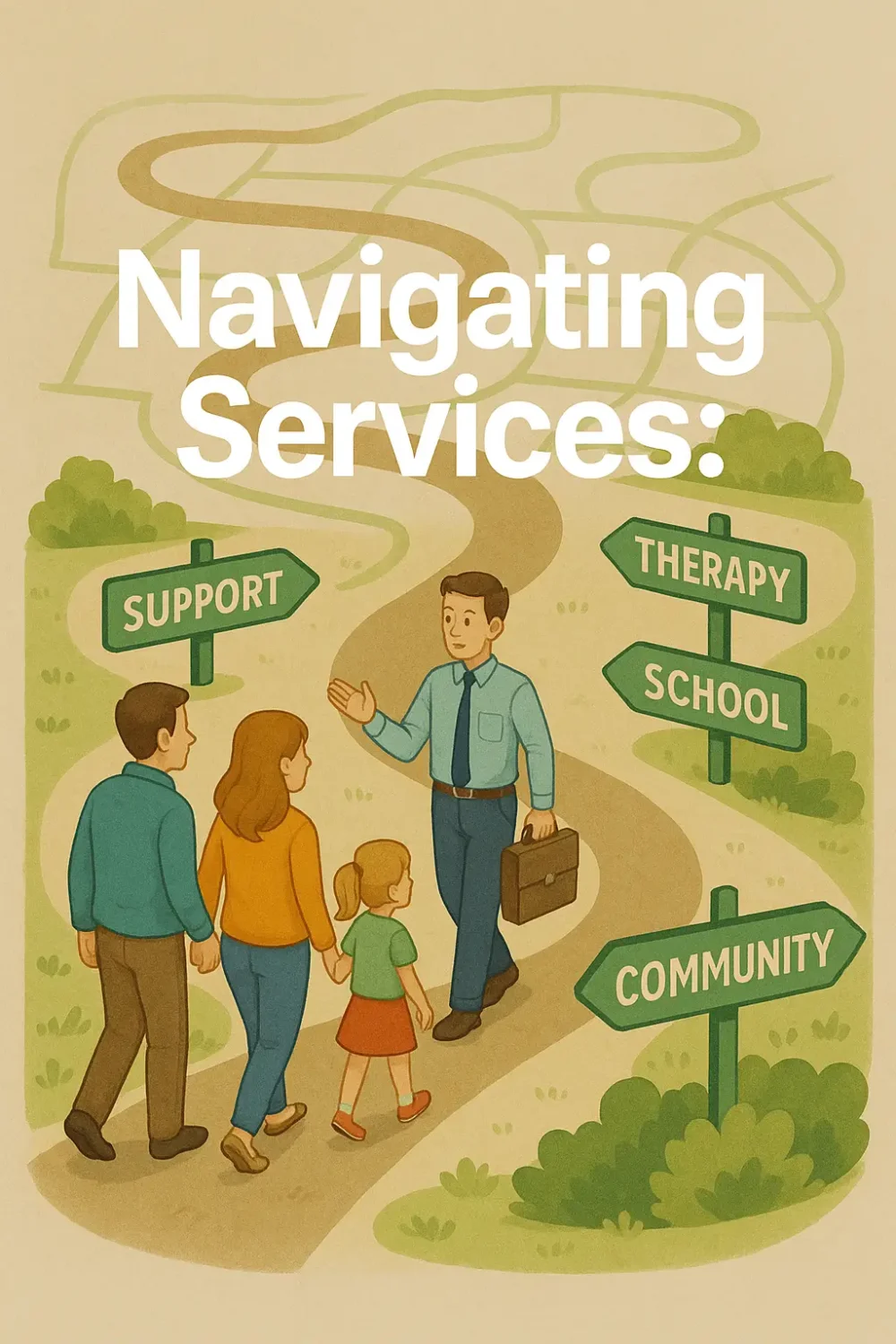Summer has a way of shifting the rhythm of family life. The days get longer, routines loosen up, and adventures start calling — from sprinklers in the backyard to road trips and sandy beaches. But if your child is on the autism spectrum, these changes can feel overwhelming. Routine is often a source of comfort, and when it disappears, so can that sense of security.
The good news? With a little planning and creativity, summer doesn’t have to be stressful. In fact, it can become a season filled with learning opportunities, skill-building, and joyful memories. Here’s how to make the most of it:
Keep a rhythm that works for your family
Summer doesn’t need to be scheduled down to the minute, but kids still thrive when they know what’s coming next. A simple visual calendar can go a long way — think colorful drawings or picture cards that show when it’s time for therapy, a trip to the park, or just quiet time at home.
Start and end the day with a few predictable anchors, like morning songs, evening reading, or a favorite snack routine. These small consistencies create a safety net, so even when the middle of the day is more flexible, your child still feels grounded.
Build skills through play and adventure
Summer is full of natural opportunities to practice skills in ways that don’t feel like work. The key is weaving those learning moments into everyday fun:
Water play
Buckets, sprinklers, and water balloons aren’t just for cooling off — they’re great for practicing turn-taking, following directions, and reinforcing safety rules. For example: “Fill the bucket, carry it across the yard, pour it out.” It’s play, but it’s also sequencing and listening practice.
Nature adventures
A walk in the park or a hike on a trail is full of teachable moments. Point out a squirrel, stop to smell flowers, or listen for birds — all of these encourage joint attention and descriptive language. Scavenger hunts make it even more interactive: “Let’s find something yellow,” or, “Who can spot three different kinds of leaves?”
Picnics & family outings
Picnics aren’t just about sandwiches under a tree. They can help kids practice waiting, trying new foods, greeting family members, and handling transitions. Even something as simple as packing up the blanket at the end can be a great chance to practice following multi-step directions.
Prepare for camps and vacations
Heading to camp or traveling somewhere new can be exciting — but also nerve-wracking. A little prep makes all the difference.
- Share your child’s communication tools, visual supports, or strategies with camp staff ahead of time.
- Create a social story together about what camp or the vacation will look like.
- If possible, visit new places in advance. If not, explore them online with photos or videos.
- Don’t forget comfort items. A favorite toy or blanket can ease the stress of unfamiliar environments.
These steps give your child a sense of control and confidence before the big adventure even begins.
Foster social connections
Summer is a great time for small, relaxed get-togethers. Playdates with familiar friends or cousins can be the perfect chance to practice greetings, sharing, and turn-taking without the pressure of a big group. Start small — even 30 minutes of play can be valuable social practice that feels fun, not forced.
Don’t forget yourself
Parents, this one’s for you: summer isn’t just about the kids. Your well-being matters, too. Whether it’s enjoying coffee before the house wakes up, sneaking in a walk, or carving out a little time with friends, these moments refill your cup. And when you feel grounded, it’s easier to show up fully for your child.
Give yourself (and your child) grace
Even with the best plans, some days won’t go smoothly. That’s okay. Flexibility is part of the process. Adjust, try again, and remember — you don’t have to make every day perfect. What matters most is creating an environment where your child feels supported and your family finds joy in the moments you share.
The bottom line
Summer doesn’t have to mean losing structure or falling behind. With preparation, creativity, and compassion, it can be a season of growth, laughter, and stronger connections. The skills your child builds through play and adventure will last long after the summer sun fades.


